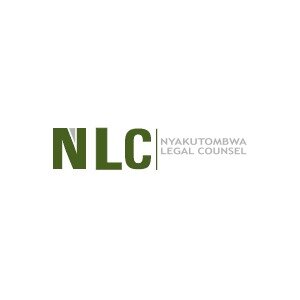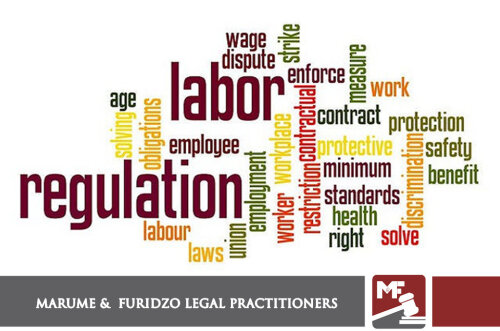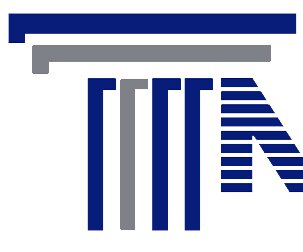Best Real Estate Lawyers in Harare
Share your needs with us, get contacted by law firms.
Free. Takes 2 min.
Free Guide to Hiring a Real Estate Lawyer
List of the best lawyers in Harare, Zimbabwe
About Real Estate Law in Harare, Zimbabwe
Harare, the capital city of Zimbabwe, offers a dynamic real estate market with properties ranging from residential, commercial to agricultural lands. Real estate law in Harare encompasses a variety of legal matters, from property ownership and transactions to zoning and environmental regulations. Understanding these laws is crucial for both buyers and sellers to ensure legal compliance and protect their investments. The city's governing body oversees property transactions and ensures that they align with the country's Land Act, Deeds Registries Act, and other pertinent legislation.
Why You May Need a Lawyer
Engaging a lawyer in real estate transactions can offer numerous benefits, particularly in scenarios where legal complexities may arise. Some common situations where you may require legal assistance include:
- Property Transactions: Buying or selling property often involves intricate paperwork and legal procedures. A lawyer can help manage these transactions, ensuring that contracts are fair and binding.
- Dispute Resolution: Conflicts over property boundaries, lease agreements, or breaches of contract may require legal mediation or litigation.
- Regulatory Compliance: Adhering to zoning laws and environmental regulations can be challenging without legal guidance.
- Title Search and Clearance: Lawyers conduct title searches to ensure properties have clear ownership histories, helping avoid future disputes.
- Inheritance Issues: Property inheritance often involves legal complexities that require expert advice to navigate probate and ownership transfers.
Local Laws Overview
Real estate in Harare is governed by several key laws and regulations that impact transactions and property management:
- Land Act: This act provides the statutory framework for land ownership, lease agreements, and land use permissions in Zimbabwe.
- Deeds Registries Act: Governs the registration of real estate transactions, providing a legal avenue to confirm property ownership.
- Regional, Town, and Country Planning Act: This act outlines zoning regulations and land-use planning to ensure orderly development in Harare.
- Environmental Management Act: Enforces environmental protection regulations, which are crucial for developers and property owners.
- Rent Regulations: These laws set the guidelines for tenant and landlord relations, including rent-setting and eviction procedures.
Frequently Asked Questions
What is the process for buying property in Harare?
Buying property involves finding a suitable property, negotiating a purchase price, conducting due diligence, preparing legal contracts, and registering the property under the Deeds Registry Office.
How can I ensure a property title is clear?
A lawyer can conduct a title search to verify the property's ownership history and confirm that it is free of outstanding claims or disputes.
What are the taxes involved in property transactions?
Property transactions often incur transfer fees and capital gains tax. It's important to consult with a tax expert or lawyer to understand these obligations.
How do zoning laws affect property development?
Zoning laws dictate the permissible use of land in specific areas, influencing what can be built and how properties can be utilized. Compliance with these laws is crucial for developers.
What are the key responsibilities of landlords in Harare?
Landlords are responsible for maintaining property standards, respecting tenant privacy, and adhering to agreed-upon lease terms. They must comply with local rent regulations.
How do I resolve a property boundary dispute?
Boundary disputes can often be resolved through mediation, but may require legal intervention if an agreement cannot be reached.
Can foreigners purchase property in Harare?
While Zimbabwe's policies can be restrictive, foreigners can often acquire property through joint ventures or with government approval.
What should I do if my tenant breaches the lease agreement?
Consider negotiating a resolution or consult a lawyer to understand legal options such as eviction, if necessary.
Is it necessary to have insurance on my property?
While not legally mandatory, property insurance is strongly recommended to protect against potential liabilities and losses.
What happens to my property if I die without a will?
The estate will go through a process of intestate succession, whereby property distribution is determined by local inheritance laws. Drafting a will can help avoid complications.
Additional Resources
For those seeking further information on real estate in Harare, the following resources may be useful:
- ZIMRA (Zimbabwe Revenue Authority) for tax regulations and obligations.
- Deeds Registry Office for information on property registration.
- Harare City Council for local zoning laws and property development guidelines.
- The Ministry of Local Government and Public Works for policy updates and government programs.
Next Steps
If you need legal assistance in real estate, consider the following steps:
- Research and shortlist reputable real estate lawyers in Harare.
- Contact potential law firms for consultations to discuss your specific needs.
- Prepare necessary documentation and background information to facilitate the legal process.
- Engage a lawyer with whom you feel comfortable and confident in their expertise.
Lawzana helps you find the best lawyers and law firms in Harare through a curated and pre-screened list of qualified legal professionals. Our platform offers rankings and detailed profiles of attorneys and law firms, allowing you to compare based on practice areas, including Real Estate, experience, and client feedback.
Each profile includes a description of the firm's areas of practice, client reviews, team members and partners, year of establishment, spoken languages, office locations, contact information, social media presence, and any published articles or resources. Most firms on our platform speak English and are experienced in both local and international legal matters.
Get a quote from top-rated law firms in Harare, Zimbabwe — quickly, securely, and without unnecessary hassle.
Disclaimer:
The information provided on this page is for general informational purposes only and does not constitute legal advice. While we strive to ensure the accuracy and relevance of the content, legal information may change over time, and interpretations of the law can vary. You should always consult with a qualified legal professional for advice specific to your situation.
We disclaim all liability for actions taken or not taken based on the content of this page. If you believe any information is incorrect or outdated, please contact us, and we will review and update it where appropriate.
Browse real estate law firms by service in Harare, Zimbabwe
Harare, Zimbabwe Attorneys in related practice areas.















